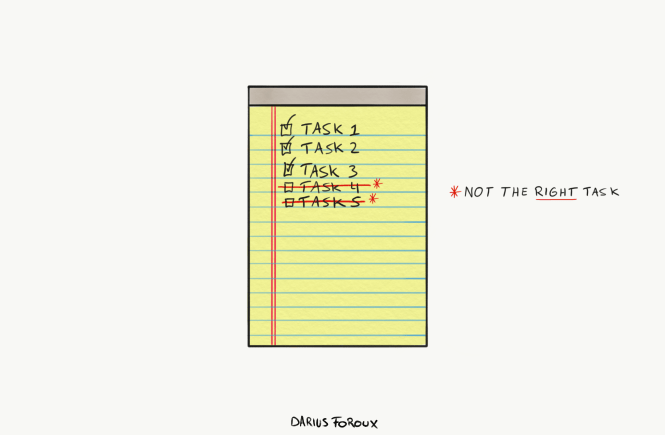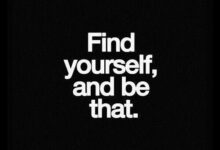
What Is Productivity? A Proven Guide to Improve Your Productivity
Welcome to this productivity guide. The purpose of this guide is twofold. First, I will define what productivity is. Too often, we try to improve productivity without knowing what it is. Second, I share tested and proven ways to improve your productivity.
This is a dynamic guide. I’ve been researching productivity for 10+ years. I update this page as I find new ways to improve it. Feel free to bookmark this page as a reference. Productivity is not something we only study once. It’s a continuous practice. I hope you find this guide useful.
Content Of This Guide:
- The Best Definition Of Productivity
- Benefits Of Improved Productivity
- Common Productivity Challenges
- Widely Used Productivity Tips
- Best Productivity Books
- Productivity Apps That Actually Work
The Best Definition Of Productivity
Productivity is a concept that’s widely misunderstood. The main reason is that we use the word productivity on a macro and micro scale. On the news, we read about workforce productivity, which is basically the aggregate output of all workers.
So when we read “Productivity increased in September” we’re confused. Those macro trends have nothing to do with how productive a person is. To me, productivity is a personal measure. Especially in the 21st century where most of us work independently. We’re no longer machine operators. We’re skilled knowledge workers who manage their own time and energy.
Based on the above, there are two types of productivity:
- Workforce productivity: The total amount of goods and services workers produce in a certain period.
- Personal productivity: The relevant output of an individual in a certain period.
You do not control the former but you have 100% control over the latter. Hence, if a person, manager, CEO, leader, wants to improve collective productivity; one must improve personal productivity.
One note on the definition of personal productivity. By relevant output, I mean working on the right things. You can be highly productive and have a lot of output, but the results you achieve might be useless. When you focus on relevant output, you get the right things done. Things that improve your career, business, organization.
Also, it’s important to look at productivity over a certain period, preferably monthly. Consistent output is what drives results.
Benefits Of Improved Productivity
Productivity is the #1 measure1 that defines growth in the economy and one’s living standards (higher income, better benefits, more free time). Ray Dalio, a well-known investor and philanthropist, emphasized the importance of productivity in his explainer video How The Economic Machine Works.
In the 30-minute video, he explains how the economy works and gives advice on how you can increase your wealth. His most important piece of advice? Here it is:
”Do all that you can to raise your productivity, because in the long run, that’s what matters most.”

The benefits of increasing your productivity are clear: When you work on the right things, you will get more and better results. That’s how we realize growth. Here are three additional benefits of improved productivity:
- Innovation2—Modern-day life and work have always been about change. However, the pace of change has substantially increased in the 21st century. Also, technology has increased our productivity. But the reverse is also true; our increased productivity leads to more innovation and new technology. The more productive we become, the more we can innovate.
- Self-confidence3—In 1952, Bernice Milburn Moore published an article called Self-Confidence For Competence in the journal of Educational Leadership. In the article, she shares how self-confidence is boosted by your competencies. In other words: The better you get at something, the more self-confident you will be. The more productive you are, the more competencies you can develop. Hence, the more confident you will become.
- Higher engagement4—The more involved and passionate someone is about their work, the higher their levels of work engagement is.
The research into productivity is robust. But it doesn’t require scientific research to experience the power of productivity. Simply improve your personal productivity and see what effects it has on your work, energy, mind, rewards, happiness, etc.
Common Productivity Challenges
Before I share the most commonly used techniques to improve productivity, I want to focus on the biggest obstacles. If you don’t address these common blocks, none of the productivity tips will stick.
- Distractions — The modern-day workplace is an inherently distracting place. Enter any office building and you’ll see countless people in meeting rooms, walking around, drinking coffee, or chatting about the latest episode of a popular entertainment show. If that’s not distracting enough, we all own devices that demand our attention. As a result, we can’t work on our tasks without getting interrupted for 5 minutes.
- Personal reasons — Life is demanding. Some of us work 10 hours a day (or more). That leaves us only a few hours of spare time in the evenings. As a result, we’re spread to thin because we also have our personal demands like relationships, family, doing groceries, paying bills, working out, etc.
- Not enough training — We want to be more focused at work. We want to be more calm in our personal lives. We want to make sure our lives matter. But we don’t see productivity as a skill one can learn.
All the above challenges can be solved by improving your productivity skills. It’s important to be aware of what’s standing in your way to becoming your most productive self. For most of us, the three above roadblocks are the biggest ones. We need to commit to overcoming them and strive to reach our full potential.
Widely Used Productivity Tips
To achieve your full potential, use the following productivity tips. All the techniques have been tried and tested. More than 30 million people have read my articles since 2015. I’ve received thousands of emails from people all over the world. The techniques I share below are the most effective ones according to readers.
- How To Journal For Self-Improvement — While you might think that journaling has nothing to do with improving productivity; keeping a journal is one of the most powerful tools on earth. Many historical figures kept one. It can’t be a coincidence. If you’re starting with personal development, I recommend starting with journaling as well.
- The Pomodoro Method: Take Strategic Breaks To Improve Productivity — This method instantly improves your focus. It’s been highly researched. And the results are clear: The Pomodoro method is one of the best productivity techniques that exist.

- Goals Don’t Replace Systems - And Vice Versa — Changing our perspective on our goals will change the way we work. This is an essential article about using systems to become more consistent at work.
- Time Blocking: Improve Your Focus — This article proposes a structured way of working. I’ve been using this method for years.
- You Can Achieve Anything If You Focus On ONE Thing — Productivity doesn’t mean doing more work. It means working on the right things. And when you focus on one right thing after the other, you can achieve pretty much anything that’s humanly possible.

- How To Be Productive According To Ancient Philosophy — Apparently the ancient philosophers thought about productivity as well. It’s not a modern day problem. Read about the productivity advice from Socrates, Plato, Lao Tzu, and more.
- How To Manage Your Personal Energy — Improving productivity comes down to managing your energy. Too often, people try to manage their time. But that’s a classic mistake. Instead, manage your energy.
- Why More Technology Does Not Equal More Productivity — Too often, we rely on technology to make us more productive. But there’s a point of diminishing returns. Too much technology makes you unproductive.
- Why I Stopped Being Busy — The more rest, calm, and free time you have, whilst your career is growing, the more productive you are. Busyness is a trap.

- This Evening Ritual Will Make You More Productive — Morning rituals are great. But an evening ritual is more important.
- How To Quit Your Multitasking Addiction — Doing a lot of things at the same time is actually not productive at all. Here’s how you can quit.
- How To Read 100 Books A Year — A guide for people who want to read more books.
- Here’s Why Time Off Work Actually IMPROVES Your Work and Life — Productivity isn’t about working 18 hours a day or showing off. Instead of working yourself to death, take a break. It actually improves your long-term productivity.
- How To Be Productive When Your Life Is In Chaos — You can read about all the productivity techniques in the world, but if your life is in chaos, everything goes out the window. Use the tips in this article to still stay productive; even when you’re going through challenging times.
- Getting Things Done Shouldn’t Be Complicated — Finally, a lot of experts in this field tend to overcomplicate things. In the end, you still have to sit down and do the work.
To me, this is everything there is to productivity. By applying all the tips from the above articles, I guarantee you will see results. One word of caution: Don’t try everything at the same time. While it’s good to quit your bad habits at the same time, when you try too many new things, you can get discouraged. Instead, create a strategy. What’s the first thing you want to improve when it comes to productivity? You can come back to this guide as much as you like.







